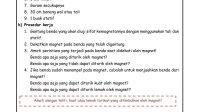Kunci Jawaban Lks Ipa Kelas 9 Semester 2 Kurikulum 2013 – Di halaman 92 dari […]
Andronezia.com - Kunci Jawaban Tema 5 Kelas 2 Halaman 155: Mengupas Materi dengan Kreativitas di Sekolah Dasar. Halo […]
Related News
Headlines
andronezia.com
Wisata Kawah Ijen, Destinasi yang Menyuguhkan Pemandangan Luar Biasa
Berlibur di Wisata Kawah Ijen bisa jadi solusi efektif untuk melepas kepenatan. Keindahan alamnya yang […]
Green Canyon Pangandaran, Tempat Wisata Liburan Untuk Penggemar Alam
Bila mendengar istilah “canyon”, pikiran seringkali terarah pada Grand Canyon yang berlokasi di Amerika Serikat. […]
Taman Safari Bogor, Kebun Binatang Berkonsep Safari Journey
Ingin mengetahui destinasi liburan yang cocok untuk keluarga? Taman Safari Bogor adalah opsi yang sempurna […]
Tumpeng Menoreh Kulon Progo, Lokasi Hingga Tips Mengunjunginya
Yogyakarta kembali menjadi pusat perhatian berkat adanya destinasi wisata baru yang menarik, terletak di Kulon […]
Wisata Cikole Lembang, Destinasi Wisata Unggulan di Bandung yang Jangan Dilewatkan
Siapa pun yang tengah mencari destinasi liburan yang menarik, salah satu pilihan yang layak dipertimbangkan […]
Desa Wisata Guranteng, Cocok Bagi yang Ingin Melepas Penat
Berkunjung ke destinasi liburan yang dipenuhi oleh keindahan alam akan meningkatkan keseruan masa liburan tanpa […]
Wisata Rancaupas, Destinasi Wisata yang Komplit di Bandung
Bandung dikenal dengan pesonanya yang menyegarkan di tengah alam. Wisata Rancaupas, di antara berbagai destinasi, […]
Wisata Pantai Tanjung Pasir, Inilah Harga Tiket Masuk dan Daya Tarik yang Dimiliki
Berlibur merupakan salah satu hal yang menyenangkan. Terutama berlibur ke pantai yang ada di kota […]
Ayanaz Gedongsongo, Tempat Wisata yang Memiliki Spot Foto Instagramble
Ketika berkunjung ke kawasan Bandungan, pengunjung akan disuguhkan dengan pemandangan menakjubkan dari balon udara berwarna-warni […]
Wisata Danau Batu Bacan Serta Tips yang Harus Diperhatikan
Danau bacan memiliki tempat yang tersembunyi di salah satu tempat Kota Sukabumi. Danau ini memiliki […]
































